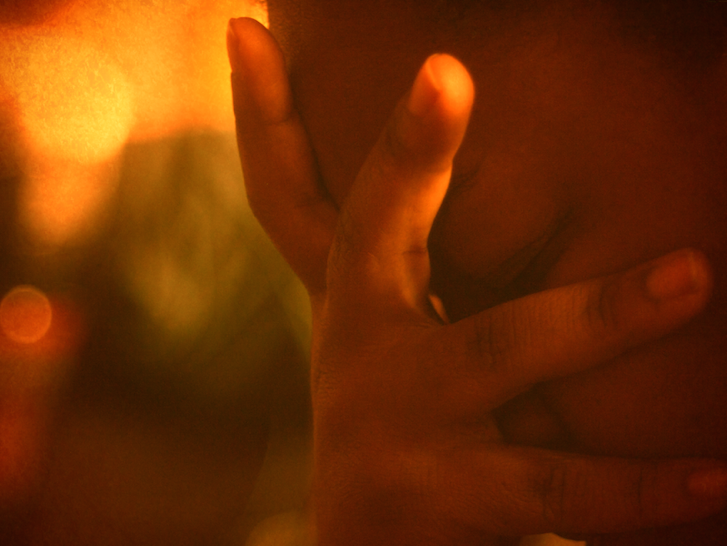BLACK HISTORY MINI DOCS BLOG
Welcome to the Black History Mini Docs Blog featuring writer, producer and editor of this page Ah-Keisha McCants. BHMD seeks to offer commentary on current events, articles on black history and history makers and their relevance to the present day, cultural celebrations, literary highlights, community outreach, artwork, prose, poetry and musings that reflect on experiences within communities of color in America and abroad. BHMD welcomes guest contributors to submit their own commentary pieces, historical explorations and current events to our blog!

AH- KEISHA McCANTS
Writer, Producer, Chief Editor for BHMD Blog
Ah-Keisha is senior editor at Duende literary journal. Her bi-coastal NYC/LA upbringing prepared her well for being married with kids in the city-burbs of PA. A poet, filmmaker, playwright, and songwriter, Ah-Keisha has written for television, film, and recording artists Olu Dara and Cassandra Wilson. She’s inspired by the work of Lorraine Hansberry, Bertolt Brecht, Tennessee Williams, Toni Morrison, and Amiri Baraka. She has been featured in Source Magazine, Village Voice, Backstage and the Courier Post. Ah-Keisha enjoys mini adventures with her kids, pointed discourse, laughter, and proudly boasts she’s never had a cavity.

Some Black People Hate Themselves
AG MCCANTS
Some black people hate themselves. Because they hate themselves, sometimes if another black person enters their presence, some folks will direct their inner hatred outward, towards the other colored person in the room. They may not perceive their negative actions to be a byproduct of self-hatred. They may believe that they are doing their jobs by upholding centuries old acts of discrimination that often accompany predominantly white spaces trained by years of implicit bias against blackness.
This October I was on an hours long train ride to Vermont and had an experience with a black service man who I believe clearly hated himself. He projected this hatred onto me and the other black passenger I traveled with. How do I know this? Based on his interaction with white patrons, our interactions were night and day.
He saw me enter Business Class in Philly. He saw the white conductor check my ticket. He knew that if I did not hold a business class ticket, I would not be permitted to stay in my seat. We made eye contact a number of times throughout the trip. I saw him glance in my direction while I unabashedly bopped my head to Prince and Mos Def. I was the only person of color in business class.
A few hours into the ride, I got a text from a friend of mine who happened to be on the same train, but in coach. We decided to meet up in the eating area, next to business class. I got up from my seat for the first time to meet my friend, who also happened to be black. As I passed by the black service man, only a couple steps into the dining car, I made eye contact with him again. I gave him the nod, but he didn’t budge. I should’ve known then. I never got off this train from Philly. I caught eyes a number of times with this black service man, and for the entire ride sat only a few steps away from him with no curtain to block the view. I never thought I’d receive the amount of shade he would eventually throw my way.
We were now somewhere in Massachusetts. Me and my friend James sat at the dining table and talked for about a half hour. The black service man saw us. At one point, he even sat at the table behind us. We decided we’d get some grub from his food station. Not even the hello the white folks ahead of us got. He coldly asked my friend for his ID when he ordered wine. Ok, I thought. He is a young looking fellow. Then it was my turn, I asked for a pizza and inquired about the free water you get when riding in business class. Do you know, dude had the audacity to say, “Oh, you were in business class?”
I looked at him like fool, please. He then asked me to show him my ticket. I hesitated for a moment. I thought about how to best respond to this dude who clearly had a problem with us both from the jump. What he was insinuating with his question and demand for my ticket really disappointed me. He not only gave me the “you don’t belong here attitude” and look, he also basically accused me of trying to get over for a measly bottle of free water just to belittle me and perhaps in some strange way, put me in my place.
I smirked at him and looked him in the eye and said, “Yes, I am in business class. You saw me sitting right over there,” I pointed to my business class seat directly in eye view of this knuckle-head self-hater. “But, ok” I continued. I pulled out my ticket and he gave me my water. As I walked away, I said to my friend so the guy could hear me, “Some black people, just hate themselves.”
Chuckling as we walked away, in reality the whole exchange was sobering. The black man working there, didn’t begin to ease up on his outward display of self-hate until the white conductor interacted with us, playfully making jokes, pointing out the white kooks on the train dressed in aluminum foil. I wondered if the black guy would question them, or disapprovingly stare at them the way he’d done the normally dressed black folks on the train. Much later in the trip, my friend ordered another vino, I could sense the black service man wanted to say no or card him yet again, but knew we had peeped his real issue. It wasn’t us. It was him. By the time we arrived to Vermont, he didn’t dare make eye contact again.
Unfortunately, maybe it isn’t necessarily that black service man’s fault that he might hate himself and anyone that looks like him. Blacks have been socially conditioned to hate themselves so deep that many don’t realize that in acting out against self, nobody feels the wrath of that insecurity more than self. The rejection of self-worth through the negative treatment of others does not preserve self but instead buries the possibilities of self.
It’s hard to break the cycle because it’s systemic and engrained in American culture. Folks like the black service man may believe that by acting as an overseer, oppressor-type that they are standing some ground, wielding a power over those they don’t believe deserve respect or dignity. Maybe the truth is, the black service man and others like him, don’t believe they’re deserving of the very respect they willingly withhold from certain people specifically because of the color of their skin. The very same skin they bear. I believe my being there, in business class, where he was tasked with “serving me” disturbed him. Some black people just don’t like themselves. Rather, they don’t know themselves well enough to treat others who look like them with the same respect they instinctively give to white folks.
Copyright Black History Mini Docs Inc. 2015 All Rights Reserved
CONTACT US

